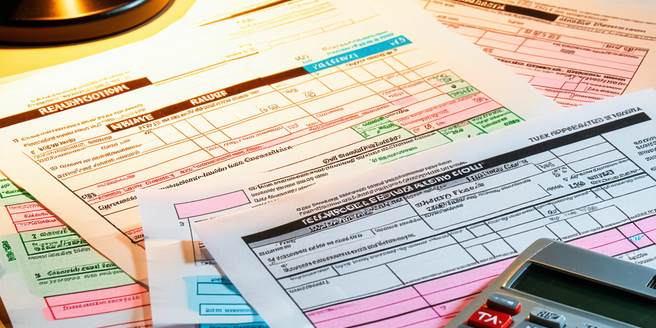
Understanding the Root Causes of Tax Anxiety
Tax anxiety often stems from various factors such as lack of knowledge, previous negative experiences, and fear of owing more than anticipated. Many individuals feel overwhelmed by the complexity of tax regulations and fear making errors that could lead to penalties. Additionally, past encounters with tax filing, especially negative ones, can lead to increased stress. This anxiety may be exacerbated by procrastination, as delaying tax preparation only intensifies the pressure. Understanding these root causes can help individuals identify specific stressors and address them adequately. Education about tax laws and seeking guidance from professionals can alleviate some of the fear by providing clarity and assurance. Recognizing anxiety triggers and working towards addressing them can lead to a more manageable and less intimidating tax season.
Effective Strategies to Calm Tax Time Nerves
Managing tax time stress involves adopting specific strategies to ease anxiety. Begin by creating a detailed plan of action that includes deadlines for gathering necessary documents, filling forms, and filing your return. Breaking the tax preparation process into smaller, manageable tasks can mitigate feelings of being overwhelmed. Additionally, setting aside regular, dedicated times to focus on tax tasks can prevent last-minute panic. Practicing stress-relief techniques such as deep breathing or meditation provides a calming influence, helping maintain focus and composure throughout the process. Enlisting assistance from trusted sources, either through professional tax help or using reputable software, can ease uncertainties. Taking these steps can transform tax season from an anxiety-inducing period to a more ordered and efficient experience.
Organizational Tips for a Stress-Free Filing
A key to reducing tax season stress is staying organized. Begin early in the year by setting up a dedicated space to keep all tax-related documents. Utilize folders or digital organization tools to categorize receipts, income statements, and other relevant paperwork. Regularly update these files throughout the year to avoid a last-minute scramble. Additionally, maintaining an up-to-date list of significant tax events ensures nothing is overlooked. Checking off each document as it’s collected saves time when filing. Simplify the paperwork by using apps or software that can scan and store documents digitally, making them easily accessible. Moreover, having a checklist of all required forms and documents streamlines the preparation process. Staying organized not only reduces stress but also ensures a smoother and more accurate filing experience.
Leveraging Technology to Simplify Tax Prep
Technology offers a wide range of tools to facilitate easier tax preparation. Tax software can simplify the process by guiding users through each step and checking for errors. Online calculators provide quick estimates of potential returns or liabilities, aiding in better financial planning. Securely storing documents in the cloud ensures they are easily accessible and protected from loss. Apps designed specifically for tax document organization can streamline paperwork management. Additionally, using direct deposit or electronic filing services accelerates the refund process, providing peace of mind. Regularly updated software also adapts to the latest tax codes, ensuring compliance. By integrating these technological tools, taxpayers can alleviate some of the burdens associated with filing, making the experience less daunting and more efficient.
How to Find Professional Tax Assistance
Finding professional tax assistance can significantly ease the burdens of filing. Begin by seeking referrals from friends or family who have had positive experiences with tax professionals. Check for credentials, such as certification from recognized accounting bodies. It’s essential to verify a professional’s experience with similar tax situations to ensure they can handle the specifics of your case. Many accountants offer preliminary consultations where you can discuss your needs and gauge their expertise and compatibility. Online reviews and ratings can also provide insights into a professional’s reliability and customer satisfaction. Once engaged, maintain open communication and ensure all documentation is complete and accurate. By choosing the right professional, you gain peace of mind and confidence that your taxes are prepared accurately and efficiently.
Mindfulness and Stress Reduction Techniques for Tax Season
Incorporating mindfulness can be beneficial in reducing tax-related stress. Begin with setting realistic expectations and accepting that mistakes may happen, which helps mitigate undue pressure. Engage in regular mindfulness practices such as focused breathing or meditation to maintain calmness and clarity during tax preparation tasks. Taking short breaks to stretch or relax can alleviate tension and refresh mental focus. Practicing gratitude and positive thinking shifts focus from stress to appreciation, which can lighten the emotional load. Managing time effectively and avoiding multitasking allows for better concentration on individual tasks. These techniques, when applied regularly, foster a more serene and focused approach to handling taxes, transforming the season into a more positive experience.
